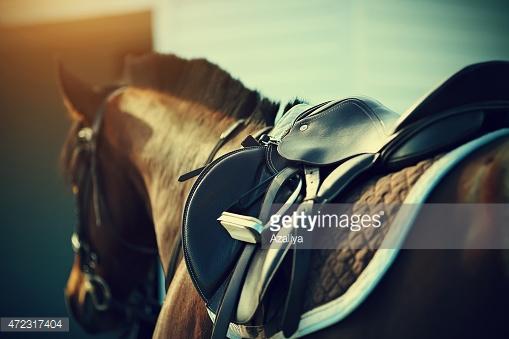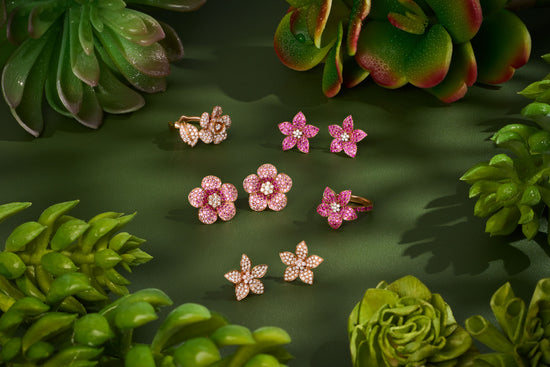Colic in a horse can become a serious condition. It can also be mild and pass very quickly. That is because “colic” is defined as any pain in the abdomen, though it is most commonly referred to issues being experienced within the gastro-intestinal tract of the horse.
How do horses get colic? The causes of colic can be many, but generally occur because of an imbalance in the GI tract or there is an issue with the anatomy. There can be certain care issues that can lead to the development of colic as well.
Here are the most common causes of colic and what can be done to treat the issue.
#1. High grain-based diet.
If an owner is feeding too much protein grains, then it can cause constipation within the horse. Horses are primarily grazers, relying on roughage to balance out their system. Reducing grains or encouraging pasture time can generally resolve this issue with colic.
#2. Low forage diets.
If a horse isn’t being turned out on a regular basis with an opportunity to forage, then colic will generally occur. You don’t need to have a pasture to encourage foraging. Providing hay to a horse while turned out can help to reduce the risks of colic developing rather quickly.
#3. Changes in feed.
Horses are creatures of routine. They love to go out at a certain time, come in at a certain time, and be groomed in specific ways. Most horses also prefer to have a set routine with their feed. If there are abrupt changes to the amount of feed a horse receives, the type of feed being used, or when the feed is distributed, then colic may occur until the horse is able to adapt to the changes.
#4. There may be a parasitic infection.
Most horses are able to tolerate small parasites without much difficulty. Many will not even show any discomfort. In a heavily infected horse, however, colic and diarrhea will occur frequently. The horse may also experience weight loss, have slowed growth if the horse is young, and have a lack of energy. Some horses may also see a reduction in the quality of their coat. Veterinary care is usually required to eliminate the infection so the colic and other symptoms can resolve.
#5. Ingestion of foreign substances.
Since horses are foraging creatures, there is always the chance that they could ingest a foreign object. Many cases of colic tend to be caused by the ingestion of sand or dirt. Anything that is eaten which is not a natural food source for a horse has the potential to create colic, however, so a regular property and stall inspection works well as a preventative measure.
#6. The horse isn’t getting enough water.
A horse that isn’t getting enough water will likely be constipated. This can quickly lead to the signs and symptoms of colic being present. Making sure the horse has access to water and encouraging it to drink will often relieve the symptoms of colic, sometimes in only a few hours.
\nBARBARIANS: Sick horse with colic found DUMPED Tuesday 24/06/2014 nr rubbish tip Porto Rafti #Greece (rescued) pic.twitter.com/UcWk0ilbl9
— GREECE EXPOSED (@GreeceExposed) June 30, 2014
#7. Horses that are stressed out may also experience colic.
Ever notice how your stomach feels sort of queasy and uneasy when you get nervous? Or how your stomach might ache if you’re feeling bored or having a bad day? The same thing happens to horses. If a horse finds itself in a stressful environment, then there is a good chance that colic will develop. Stress-based colic can be difficult to treat because it may be intermittent in nature. There may also be other colic triggers present as well. The best solution here is to create a regular routine for the horse and then stick to it as often as possible.
#8. Dental problems may also cause problems.
Colic can also develop when a horse is struggling with dental health. This tends to occur when cribbing is an issue, but any problems with dental health can affect the eating habits of the horse. Since this puts the horse outside of its normal routine, colic can end up being the result. Treating the dental issues and preventing cribbing will typically resolve the symptoms being experienced.
#9. Using certain pain-relief medications for a long period of time.
NSAID medications are known to irritate the stomach lining of horses when they are taking over a long period of time. Sometimes long-term pain relief is necessary, however, so owners sometimes face a difficult decision. Although colic may not be able to be prevented completely with NSAID use, giving the horse the medication just after eating or offering injections to prevent stomach irritation can help relieve symptoms and help the horse to heal.
#10. Antibiotics are also known to cause colic.
Antibiotics can cause colic because they interrupt the balance of microbial life in the GI tract. This changes starch digestion, which then creates more gas and bloating and ultimately colic. These issues are increased if there are dental issues which cause the horse to not properly chew its food.
#11. Coarse hay on its own can cause colic.
This is particularly true in horses that do not chew their food well or tend to rush through a meal. The coarseness of the roughage can irritate the throat and the stomach, which can then create feelings of uneasiness within the horse. Coarse hay may also cause stomach distention, especially if large amounts of grain were also consumed around the same time.
#12. Movement of the small intestine.
In the abdominal cavity of a horse, the small intestine is suspended by the mesentery. This means it is floating free. Depending on the mobility and movement of the horse, the small intestine can sometimes become twisted and cause the symptoms of colic. The pain felt by the horse in this circumstance can be intense, so the reactions of the horse will be equal to that intensity. Immediate surgery is required to correct these situations because the intestines are being damaged by a lack of blood flow.
#13. A simple illness.
You know how sometimes your stomach can hurt when you feel sick, like with the cold or the flu? The same also applies to horses when they catch a similar bug.
Colic on its own is a clinical sign instead of a diagnosis. This means before attempting to treat the signs and symptoms of colic, it is important to determine what the cause of it may be. Horses should always be on a deworming protocol and feed should be distributed above ground to prevent sand and dirt ingestion. If medication is recommended, only administer it under the direct supervision or order of your veterinarian.
Horses get colic for many reasons, but with some preventative measures, most cases of this painful circumstance can be avoided.




